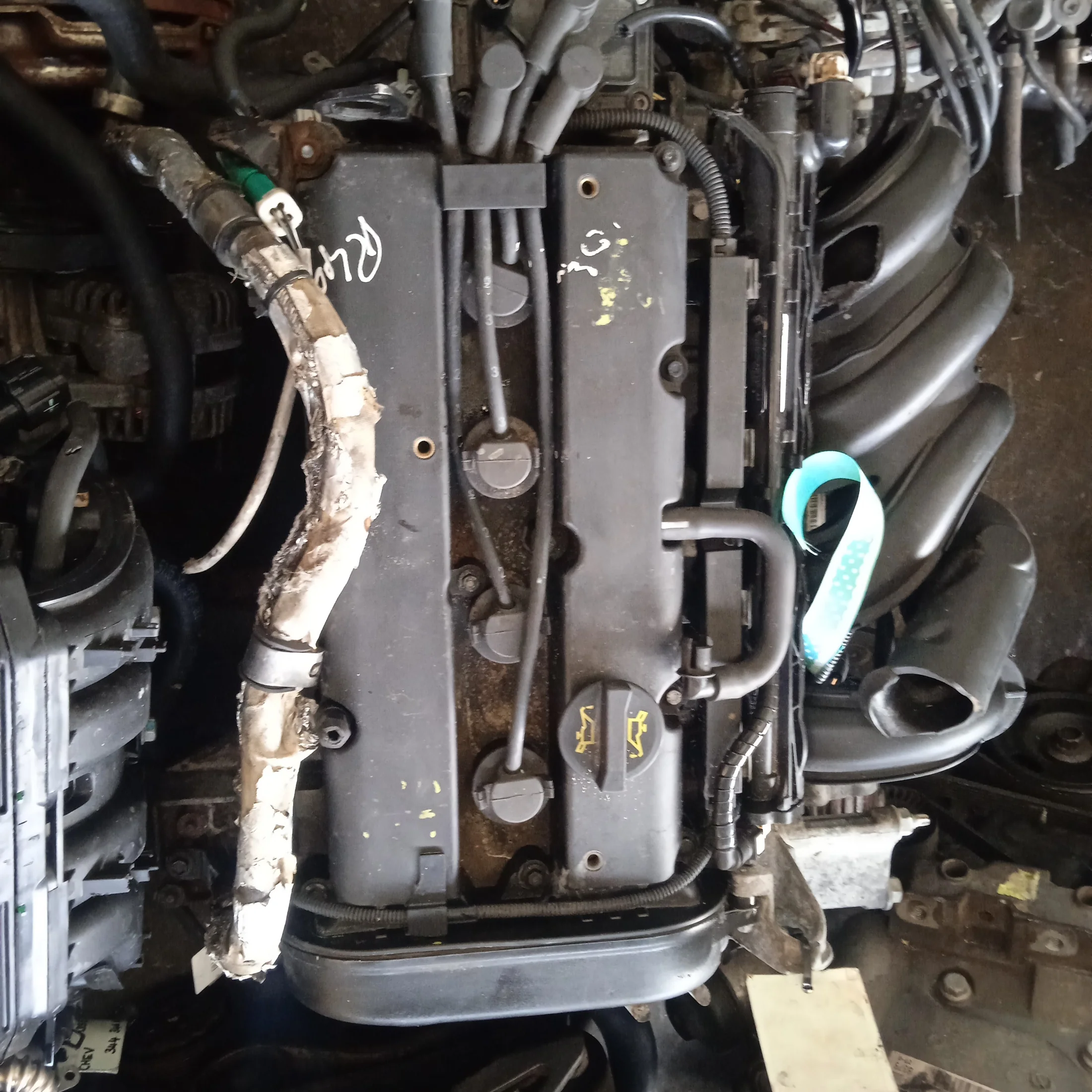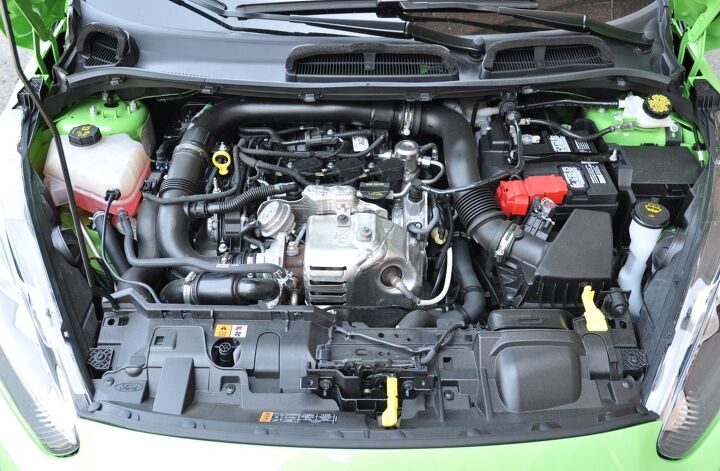The Role of a Quality Ford Fiesta Engine in Vehicle Performance
Opening the Power of Engines: A Comprehensive Guide to Efficiency and Effectiveness
Comprehending the complex mechanics of engines is vital for both efficiency lovers and everyday drivers. The answers may redefine our approach to engine efficiency and performance in methods that are both enlightening and vital.
Understanding Engine Basics
What comprises the essential mechanics of an engine? At its core, an engine is a machine made to convert fuel right into mechanical energy via a series of regulated surges or burning processes.
The crankshaft after that transforms this straight activity right into rotational power, which eventually powers the lorry. The camshaft manages the opening and closing of the shutoffs, controling the consumption of air and gas and the expulsion of exhaust gases. Furthermore, the engine counts on a meticulously calibrated fuel-air combination, ignition system, and cooling system to make certain optimal efficiency and effectiveness.
Recognizing engine basics likewise entails identifying the importance of engine cycles, such as the four-stroke cycle, which consists of consumption, exhaust, compression, and power strokes. Each stage is important in ensuring the engine functions smoothly and successfully. Proficiency of these basic auto mechanics lays the foundation for discovering extra complex engine dynamics and performance metrics, vital for enhancing both power result and performance.
Trick Performance Metrics
Secret efficiency metrics are necessary for evaluating an engine's efficiency and power result, offering important insights for both producers and consumers. These metrics act as standards for engine efficiency, permitting notified choices in design, production, and purchasing.
One of the key metrics is horse power, which measures the engine's ability to execute work over time. Torque, measured in pound-feet, is an additional critical statistics that indicates the engine's rotational pressure, directly affecting acceleration and lugging ability. Fuel performance, commonly measured in miles per gallon (MPG) or litres per 100 kilometers (L/100km), assesses just how effectively the engine transforms fuel right into movement, impacting ecological factors to consider and functional costs.
In addition, thermal effectiveness actions how well an engine converts fuel energy right into helpful job, exposing understandings into power losses primarily with heat. Discharge degrees, including CO2 and NOx, are additionally important, reflecting the engine's ecological influence and compliance with regulative requirements.

Tuning Methods for Efficiency
Tuning methods play a substantial role in improving engine performance by optimizing performance metrics determined in earlier conversations (ford fiesta engine). Various methods exist to make improvements an engine, each contributing to improved fuel economic situation and reduced discharges
One reliable technique is adjusting the air-fuel ratio, making sure the engine runs within the optimal combustion program. A leaner blend can improve gas efficiency, however it must be balanced to avoid misfires or engine knock. Furthermore, reprogramming the engine administration system can recalibrate specifications such as ignition timing, which additionally enhances effectiveness while preserving power outcome.
One more essential strategy entails customizing the intake and exhaust systems. Upgrading to high-performance air filters and exhaust headers can minimize back stress, assisting in much better air flow. This allows the engine to take a breath even more openly, causing improved combustion efficiency.
Furthermore, the implementation of advanced adjusting tools, like dyno testing, gives precise information that makes it possible for targeted modifications. Regularly keeping track of these efficiency metrics makes certain that adjusting efforts produce the wanted effectiveness outcomes. Collectively, these strategies not just strengthen engine efficiency yet also add to lasting sustainability in engine procedures.
Maintenance for Optimum Performance
Normal engine maintenance is important for achieving optimum performance and long life. A well-kept engine not just runs effectively but likewise minimizes the threat of expensive repair work and breakdowns. Secret parts needing regular focus include oil, filters, belts, and ignition system.
Changing the engine oil at advised periods is critical, as browse this site oil lubricates relocating components and prevents overheating. In a similar way, replacing oil and air filters makes sure that pollutants do not impair engine feature. Ignoring these components can result in minimized performance and potential engine damage.
In addition, evaluating and replacing worn belts and hose pipes is crucial to stop abrupt failures. Timing belts, in particular, must be changed according to the supplier's timetable to prevent catastrophic engine damage.
Spark plugs should also be checked and replaced as required, considering that they play a crucial role in ignition and gas performance.
Future Trends in Engine Modern Technology
Welcoming improvements in technology, the future of engine design is poised to reinvent performance and performance across different applications. Hybrid and totally electrical powertrains are becoming increasingly conventional, offering reduced emissions and improved gas efficiency.
In addition, advancements in products science are resulting in lighter, stronger elements that enhance engine performance while lowering power consumption. Advanced production techniques, such as 3D printing, allow for the creation of complicated geometries that enhance air movement and thermal management, therefore optimizing combustion procedures.
Additionally, the integration of man-made knowledge informative post and artificial intelligence is readied to transform engine diagnostics and efficiency adjusting. These modern technologies can evaluate large amounts of information in actual time, allowing anticipating maintenance and tailored performance enhancements.
Final Thought
In conclusion, unlocking the power of engines requires a thorough understanding of their mechanics and performance metrics. Carrying out reliable tuning techniques and sticking to regular upkeep methods significantly boost engine capabilities.
Additionally, the engine depends on a very carefully adjusted fuel-air mixture, ignition system, and cooling system to ensure ideal efficiency and effectiveness.
Comprehending engine essentials additionally entails identifying the value of engine cycles, such as the four-stroke cycle, which consists of consumption, compression, power, and exhaust strokes. Mastery of these essential mechanics lays the groundwork for discovering a lot more complex engine dynamics and performance metrics, essential for enhancing both power result and efficiency.

Welcoming advancements in technology, the future of engine design is positioned to change efficiency and efficiency throughout different applications.